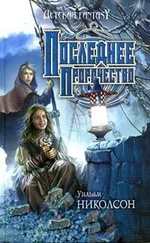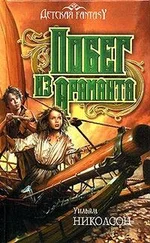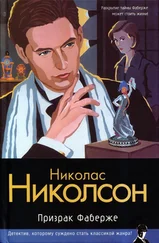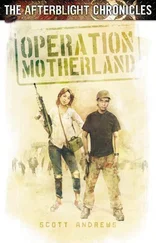4
Opposite Downing Street, across Whitehall, a short but grand street named Richmond Terrace runs down to the river. The entrance to 1A Richmond Terrace, a handsome doorway into a ponderous stone building, is neither identified nor guarded. This is the headquarters of Combined Operations, a warren of overcrowded offices that are always bustling with activity. Officers from all three services stride purposefully down basement corridors, past unmarked doors where unnamed teams are at work on secret schemes to win the war. Combined Operations was formed to develop amphibious assaults, bringing together sections of Army, Navy and Air Force. The ethos is non-hierarchical. The head of Intelligence, a one-time racing driver, was until recently managing the Curzon Cinema in Mayfair. Organisations have a way of reflecting the personality of their leaders, and this is supremely so in this case. Its chief, appointed by Churchill personally, is Vice-Admiral Lord Louis Mountbatten, known to all as Dickie. When Churchill offered him the job, Mountbatten initially declined, wishing to stay in the navy. ‘Have you no sense of glory?’ Churchill thundered.
Dickie Mountbatten has a sense of glory. Direct in all his dealings, handsome, charming, with a strong streak of the maverick, he has set about building an organisation that is free-thinking, innovative, and above all, informal. He has brought in friends, and friends of friends, who are known collectively as the Dickie Birds. Staff numbers have grown from twenty-three on his appointment to over four hundred.
A chance encounter between Lord Mountbatten and William Cornford at a club led to an invitation to Larry to present himself at Richmond Terrace in early March. There, as is the way of these things, Larry was greeted by someone who had been in his house at school, in the year above him: a beak-nosed, prematurely balding young man called Rupert Blundell.
‘Cornford, isn’t it? You thinking of joining us?’
‘That seems to be the general idea.’
‘You know what they call this place? HMS Wimbledon. All rackets and balls. But don’t let that put you off.’
The interview with Lord Mountbatten, which Larry supposed would explore his own very limited war record, was entirely taken up with memories of his grandfather.
‘Lawrence Cornford was a fine man,’ said Mountbatten. ‘My father thought highly of him. My father was First Sea Lord at the time, but when the war came, the Great War, they pushed him out because he had a German name. Disgraceful business. Even the King had to scuttle about and bodge himself up an English name. If my father was German, so was the entire royal family. It was Asquith behind it, he was a total shit. Though Winston comes out of it pretty poorly, too. He was at the Admiralty back then, he could have stopped that nonsense. I was a naval cadet at Osborne when it happened, fourteen years old. It was quite a blow, I can tell you. But anyway, your grandfather, the banana king, wrote a letter to The Times deploring the decision. “Have we so many great men,” he wrote, “that we can afford to lose one because his name is not Smith or Jones? If Great Britain is to remain great, we need leaders of the stature of Prince Louis of Battenberg.” My father appreciated that very much. So you’re looking for a change of scenery, are you? Well, we’re an odd bunch. The only lunatic asylum in the world run by its own inmates. But if I’ve got anything to do with it we should have some fun.’
This was the extent of it. Larry learned he was seconded to Combined Ops, and duly reported to Richmond Terrace. Rupert Blundell took him under his wing.
‘Any idea what you’re supposed to be doing?’
‘None whatever,’ said Larry.
‘Something’ll come up,’ said Rupert. ‘Inertia, crisis, panic, exhaustion. The four phases of military planning.’
He carried Larry off to a dungeon-like basement room which was fitted out as a canteen. Here over mugs of tea they swapped memories of schooldays.
‘Of course I hated every minute of it,’ said Rupert, the steam from his mug of tea misting his glasses. ‘But as far as I can tell that’s the point of school.’
‘I rather liked it,’ said Larry. ‘It was more fun than life at home, I can tell you.’
‘Fun?’ Rupert shook his head, bemused. ‘I expect it’s me that’s the problem. I’ve never been much of a one for fun.’
‘You were a brainbox,’ said Larry. ‘We were all in awe of you.’
He could picture Rupert Blundell from those long-ago schooldays, moving rapidly down the long corridors, keeping close to the wall, books under one arm, murmuring to himself. Spindly, bespectacled, alone.
He found himself wondering what Rupert was doing in Combined Ops. He couldn’t imagine this unworldly figure leading an amphibious assault.
‘Oh, we’re all cranks and Communists in COHQ,’ Rupert told him. ‘Solly Zuckerman roped me in to do what he calls thinking the unthinkable. I’m supposed to come up with wacky ideas that challenge the conventional military approach. Could it be done other ways? Is the price worth the cost? Keeping an eye on the bigger picture, and so forth.’
Larry’s period of idleness did not last long. General Eisenhower arrived in London charged with planning the invasion of Europe, and began by calling for a probe of Nazi Europe’s defences. No full-scale invasion could function without a port. A raid was planned that was designed to discover whether a major French port could be captured in working order.
At a meeting of the chiefs of staff Eisenhower emphasised the need to find the right commander for this ‘reconnaissance in force’.
‘I have heard,’ he said, ‘that Admiral Mountbatten is vigorous, intelligent and courageous. If the operation is to be staged with British forces predominating, I assume he could do the job.’
Mountbatten, who Eisenhower had not met before, was sitting across the table as he spoke. This was the beginning of an excellent working relationship. The planned raid was code-named Operation Rutter.
Mountbatten’s intention was to use a combination of marines and commandos for Operation Rutter. However, the War Cabinet had become increasingly embarrassed over the Canadian troops stationed in England. For two years now an entire Canadian Army had been training and waiting. The Canadian press was agitating for their boys to be given some real fighting. So Mountbatten was ordered to expand the scale of Rutter, and make it a Canadian show.
The raid depended on absolute secrecy and surprise for its success. All information between Combined Ops in London and the Canadian forces encamped on the south coast had to be carried by hand. In this way, Larry found himself with a function.
* * *
On the last day of June 1942 Larry enters the main Ops Room as instructed, to find a heated discussion under way. The room is crowded, the key officers clustered round a table on which is spread a large map of the French coast. Rupert Blundell is making himself useful laying out a sequence of aerial photographs.
‘I don’t understand,’ Mountbatten is saying. ‘We asked for bomber strikes. Winston signed up for bomber strikes.’
‘Scratched,’ says the RAF man. ‘Meeting of June the tenth. I’ve got the minutes somewhere.’
‘Scratched?’
‘Roberts didn’t like it,’ says the army man. ‘Doesn’t want bomb damage blocking the advance of his new tanks.’
‘Leigh-Mallory said the target was too small,’ says the RAF man.
Mountbatten looks disconcerted.
‘Where was I when all this was decided?’
‘You were in Washington, Dickie,’ says Peter Murphy.
‘How many battleships have we got? We have to soften them up somehow.’
Читать дальше












